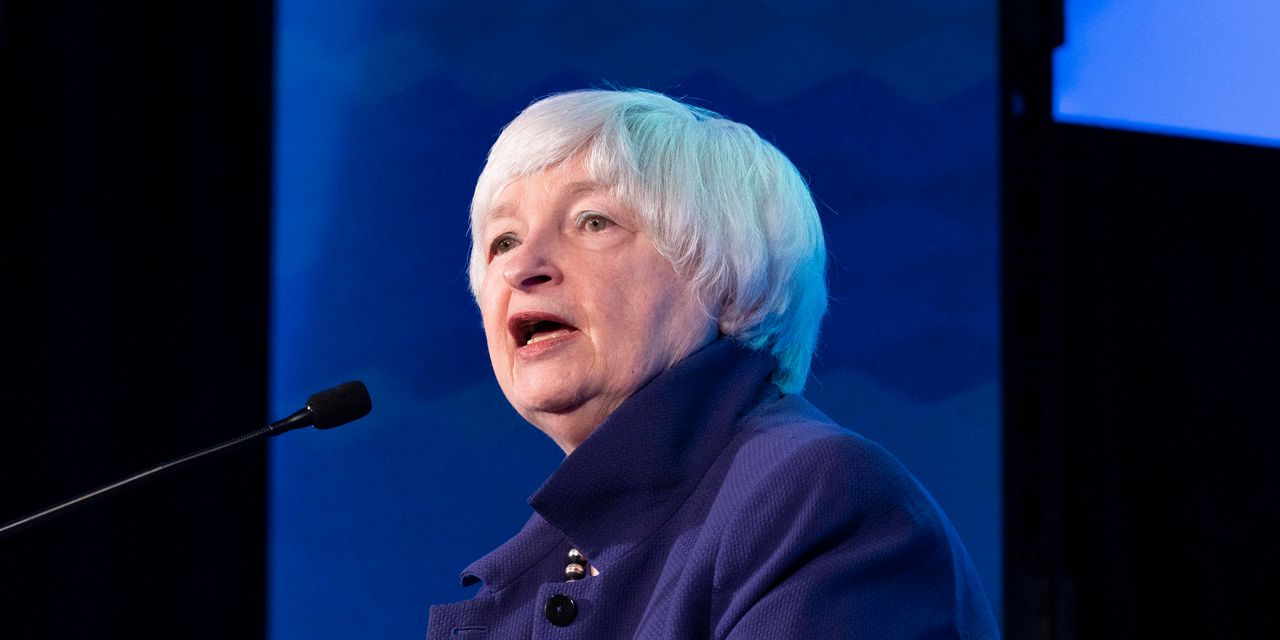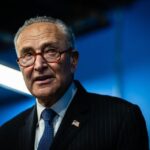
Treasury Secretary Janet Yellen said the Biden administration is aiming to boost U.S. economic capacity by focusing on issues like labor supply and public infrastructure, an approach she called “modern supply-side economics.”
The administration’s approach is a departure from traditional supply-side economics, which seeks to promote economic growth through tax cuts and deregulation, Ms. Yellen said in a speech Friday to the World Economic Forum. She pointed to a bipartisan infrastructure bill that became law last November and President Biden’s proposal for social programs—such as child care and paid family leave—and climate-change initiatives as examples of the administration’s approach to economic policy.
“Our new approach is far more promising than the old supply-side economics, which I see as having been a failed strategy for increasing growth,” Ms. Yellen said. “Significant tax cuts on capital have not achieved their promised gains, and deregulation has a similarly poor track record in general and with respect to environmental policies.”
Ms. Yellen’s comments came at the World Economic Forum, an annual meeting of world leaders in politics, finance and economic policy usually held in Davos, Switzerland. The event has been held virtually in recent years due to the Covid-19 pandemic.
“Modern supply-side economics seeks to spur economic growth by both boosting labor supply and raising productivity, while reducing inequality and environmental damage,” she said.
Republicans have said the Biden economic agenda, which calls for increased federal government spending, can have negative consequences, including stoking stronger inflation, causing larger government deficits and crowding out private-sector investment.
Ms. Yellen described the Biden approach by highlighting three of the administration’s policy priorities.
First, she said the U.S. needs to expand its supply of labor in order to increase potential economic growth. She said the administration is seeking to do that through expanded access to child care and other portions of the healthcare, education and climate plan.
Second, she said the administration aims to boost labor productivity. Previous productivity improvements driven by technological change, however, widened inequality, Ms. Yellen said. She pointed to increased spending on education and infrastructure as ways to improve productivity without widening inequality.
However, many of those policy objectives are tied to Mr. Biden’s social-spending proposal, passage of which is uncertain amid disagreement in Congress over several of the plan’s components. Ms. Yellen acknowledged that the plan’s final details are yet to be determined.
Ms. Yellen added that projects funded through the infrastructure bill “should promote sustainable growth by addressing climate change and mitigate extreme weather events, which also have disproportionate impact on the poor.”
Third, she said taxation schemes need to be leveled around the world, to avoid a “race-to-the-bottom” mentality.
The Biden administration is seeking to implement an international tax agreement that would set a global corporate minimum tax of 15% and give governments more of an ability to levy corporate income taxes on companies that sell to customers in a country without having a significant physical presence there.
Ms. Yellen on Friday said the global minimum tax would help boost U.S. economic supply by countering incentives that “have caused some companies to shift real economic activity beyond our borders.”
The international tax agreement faces several roadblocks. Provisions that would implement the global minimum tax in the U.S. are part of Mr. Biden’s stalled social-spending plan. Some Republicans, meanwhile, have argued other parts of the deal must receive congressional approval, while the Treasury Department has taken a different view, contending that legislation is just one of several options available to it for implementation.
Write to Amara Omeokwe at [email protected]
Copyright ©2022 Dow Jones & Company, Inc. All Rights Reserved. 87990cbe856818d5eddac44c7b1cdeb8








